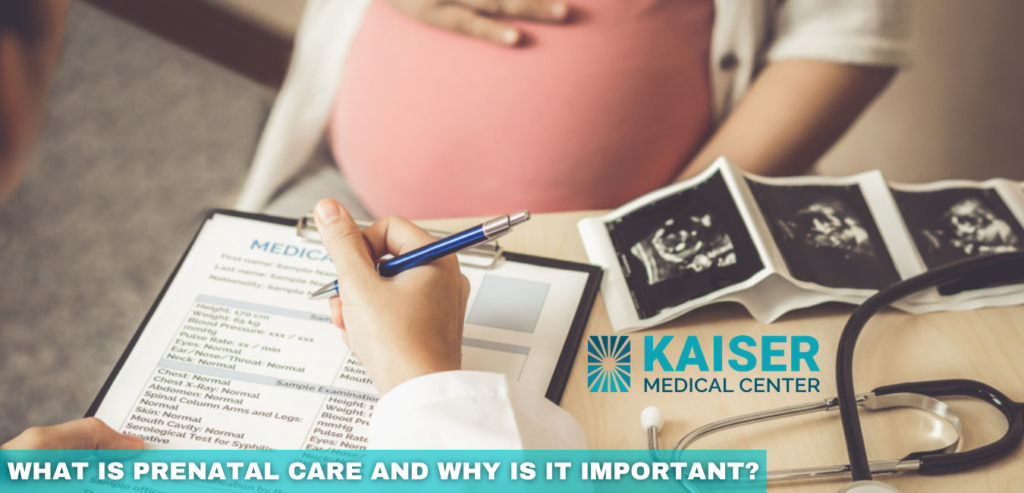Prenatal care is necessary to maximize the health of both the mother-to-be and the developing fetus. Regular prenatal care can help to minimize the possibility of serious complications and can guarantee the healthiest pregnancy possible.
“Prenatal” comes from the same roots as “pregnant.” “Pre” means before or prior to. “Natal” means birth or giving birth.
The necessary prenatal services are the care that a future mother receives during pregnancy. Receiving the proper prenatal services is important because it can help to improve the health of the woman and the fetus. It is also capable of minimizing the potential for complications for the future infant.
Having a healthy pregnancy is one of the best ways to promote a healthy birth. Getting early and regular prenatal care improves the chances of a healthy pregnancy. This care can begin even before pregnancy with a pre-pregnancy care visit to a health care provider.
What is Prenatal Care?
Prenatal care is the health care a woman gets during pregnancy. Prenatal care should begin as soon as a woman knows or thinks she is pregnant. Early and regular prenatal visits are important for the health of both the mother and the fetus.
Prenatal care is the health care a woman gets during pregnancy. Prenatal care should begin as soon as a woman knows or thinks she is pregnant. Early and regular prenatal visits are important for the health of both the mother and the fetus.
Research shows that prenatal care makes a difference for a healthy pregnancy. Women who do not seek prenatal care are three times as likely to deliver a low birth weight infant. Lack of prenatal care can also increase the risk of infant death.
Why is Prenatal Care Important?
Pre-Pregnancy and prenatal care can help prevent complications and inform women about important steps they can take to protect their infant and ensure a healthy pregnancy. With regular prenatal care women can:
- Reduce the risk of pregnancy complications
Following a healthy, safe diet; getting regular exercise as advised by a health care provider, and avoiding exposure to potentially harmful substances such as lead and radiation can help reduce the risk for problems during pregnancy and promote fetal health and development, controlling existing conditions, such as high blood pressure and diabetes, is important to prevent serious complications and their effects.
- Reduce the fetus’s and infant’s risk for complications
Tobacco smoke and alcohol use during pregnancy has been shown to increase the risk for Sudden Infant Death Syndrome. Alcohol use also increases the risk for fetal alcohol spectrum disorders, which can cause a variety of problems such as abnormal facial features, having a small head, poor coordination, poor memory, intellectual disability, and problems with the heart, kidneys, or bones.
In addition, taking 400 micrograms of folic acid daily reduces the risk for neural tube defects by 70%. Most prenatal vitamins contain the recommended 400 micrograms of folic acid as well as other vitamins that pregnant women and their developing fetuses need.
Folic acid has been added to foods like cereals, bread, pasta, and other grain-based foods. Although a related form (called folate) is present in orange juice and leafy, green vegetables (such as kale and spinach), folate is not absorbed as well as folic acid.
- Help ensure the medications women take are safe
Women should not take certain medications, including some acne treatments and dietary and herbal supplements, during pregnancy because they can harm the fetus.
Do your Regular Prenatal Check-ups with Kaiser Medical Clinics near you.
